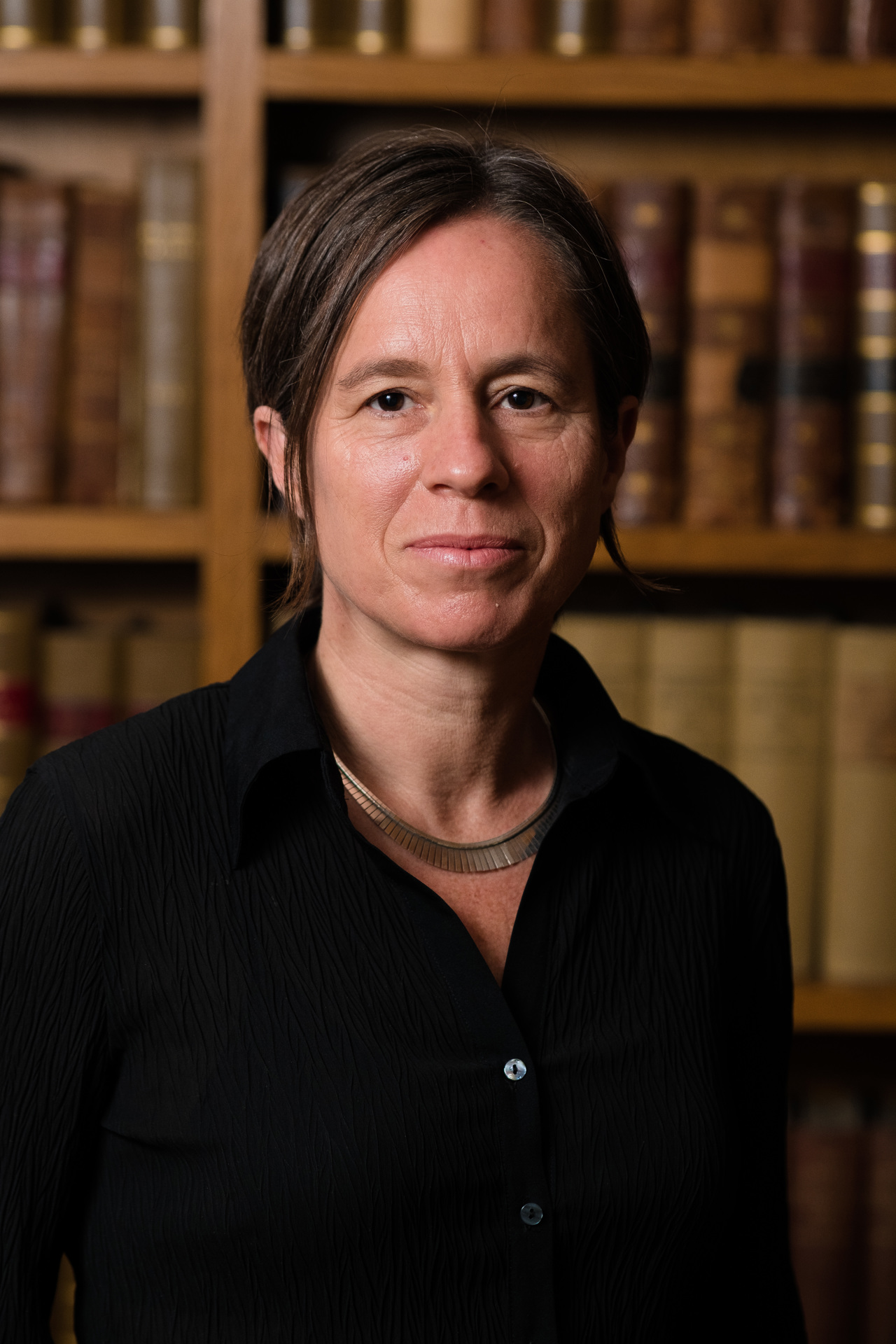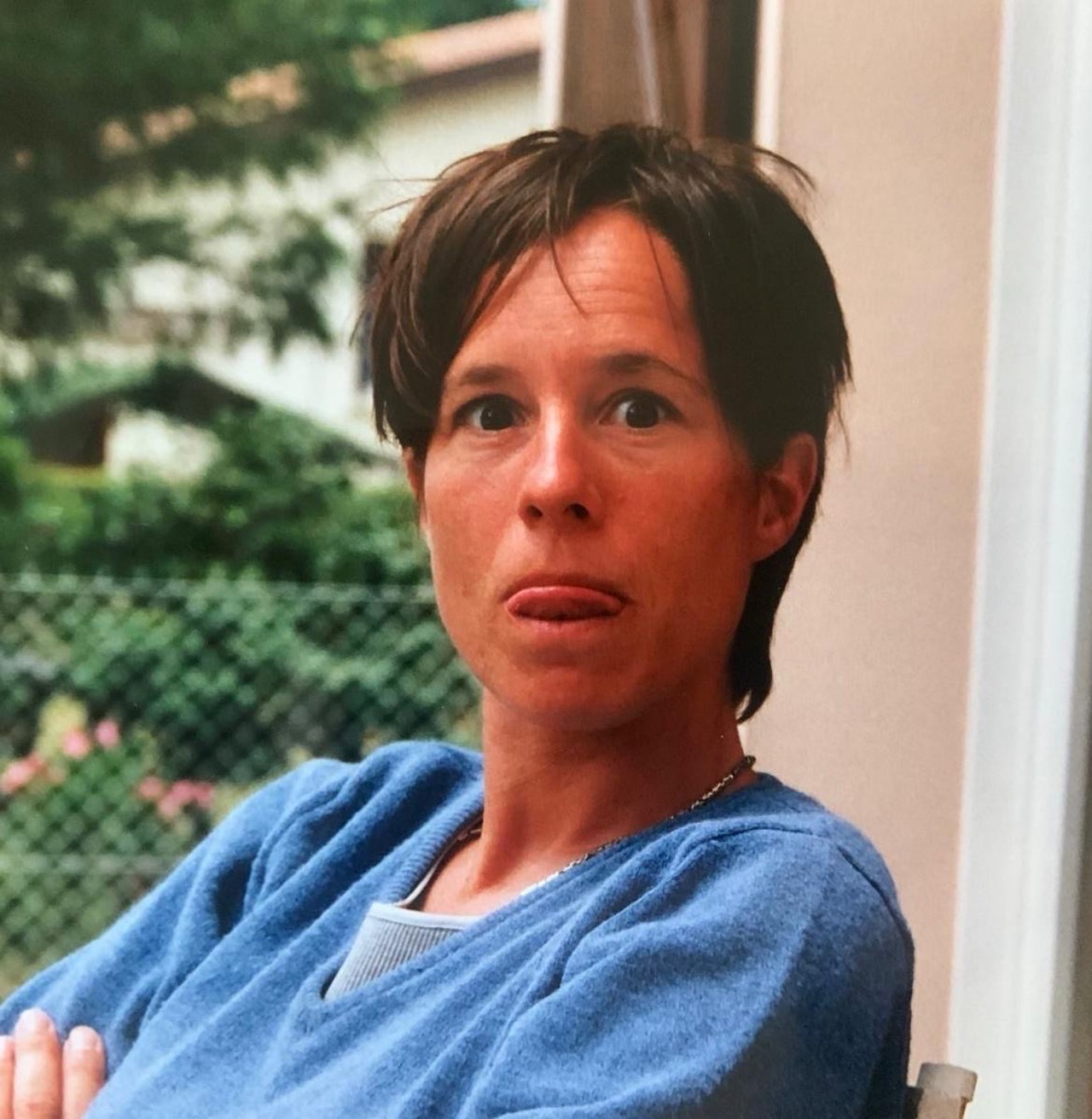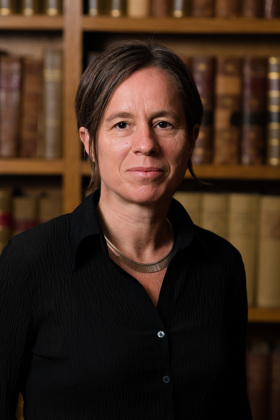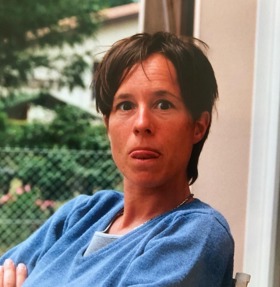Born near Biarritz in 1971, Cécile Laborde studied at Sciences Po Bordeaux and Hull University before going to Oxford to read for a DPhil in political science. Her first academic role was at Exeter University and she went on to hold posts at King’s College, London. and University College London (UCL), where she was director of UCL’s Religion and Political Theory Centre. She was a visiting professor at École des Hautes études en sciences sociales in Paris and the Institute for Advanced Study at Princeton. Laborde is now the Nuffield Professor of Political Theory at the University of Oxford. She is a Fellow of the British Academy and has published five monographs, including Pluralist Thought and the State in Britain and France, Critical Republicanism. The Hijab Controversy in Political Philosophy and Liberalism’s Religion. This narrative is excerpted from an interview with the Rhodes Trust on 11 March 2025.
Cécile Laborde
France & St Antony's 1993




‘The one thing I didn’t want to be was a teacher’
I grew up in a small village in the south of France. It was a very nice childhood, and we lived by the sea but the mountains were also not far away, so we could go swimming in the summer and skiing in the winter. We were very lucky because the local council provided lots of free classes in sport and in music, which meant that I played tennis, I played the flute, and I played the guitar in a band. My parents were teachers in the local school and they didn’t like modern life very much so we didn’t have a TV or a telephone for many years. Instead, we read books and played outside, and every summer, my parents would take us travelling. Looking back, although we didn’t have very much money, it was an incredibly privileged upbringing. But I do remember looking at my parents and all the marking they had to do in the evenings and how hard they worked and thinking that the one thing I didn’t want to be was a teacher.
When I got to secondary school level, I chose to go to a state boarding school, which was quite common in France. At the time I thought I would go on to be a journalist or a lawyer or a civil servant. I loved every subject and I worked really hard. I didn’t want to choose between humanities and social sciences and maths and physics. Eventually, I opted for a very selective university called Sciences Po where you could do lots of subjects without having to specialise.
On applying for the Rhodes Scholarship
At Sciences Po, I studied history, sociology, economics, politics and public law. I really enjoyed the discipline and the work ethic, but I also liked to go out with my friends. The defining moment for me at university was when we were offered the chance to do a dissertation on the side. The previous year, I’d been on holiday with a friend of mine to Senegal and had a wonderful time. We stayed with a family in a small village outside Dakar. I became really interested in the place and luckily, Sciences Po had one of the best centres in France for African studies. So, instead of working in politics, I went to Senegal for three consecutive summers and I became fascinated by Islam in Senegal and the Islamic brotherhoods there and went on to write the first book on one of the Sufi brotherhoods that hadn’t been studied at all. It was a wonderful experience to get that connection with Africa and it also gave me the bug for research.
I came to England to do a master’s at the University of Hull. The idea was to learn to read and write in English and then come back to France, but I never did go back, because I loved the environment of academic freedom in the UK. I decided I wanted to do a doctorate and I was just incredibly lucky that it was at a time when the Rhodes Trust was offering some European Scholarships. I came down to Oxford for the interview and I remember feeling very intimidated by the space. When I got a letter a few weeks later offering me three years of funding, I was astonished.
‘To me, it was just a journey of discovery’
At Oxford, I was at St Antony’s which was then and still is a very international place, so, I made lots of great friends from all around the world and I loved that. I also loved visiting Rhodes House. The Rhodes community had people from all over the world and that was the time when people like Desmond Tutu and Bill Clinton (Arkansas & University 1968) were visiting Oxford. To me, it was just a journey of discovery and it really confirmed what I wanted to do, which was something that would be relevant and would connect to world issues.
I always prioritised my studies, but Oxford was great socially as well. I was the social secretary in St Antony’s for a year or two, which meant that I ran the bar and organised the pool tournament. I played tennis at St Antony’s too and actually, I met my partner on a tennis court there. He was a historian at the time and I was a political scientist doing intellectual history, so we had interests in common. We’ve been together for 30 years, and when we got married, it was at St Antony’s.
‘The thing I love most now is teaching my graduate students’
My first job after finishing my DPhil was at Exeter University, which was really wonderful. My partner was doing his postdoc and he moved with me down to Devon. We bought a second-hand sailing boat and lived in a small village on the estuary of the Exe and living so near the sea reminded me of my home in France. After that, we were both able to get academic jobs in London and UCL there became my intellectual home. It did not have a department of political science at the time and it was a great opportunity for me to develop the study of political theory there. It was a project of institution-building, which I really liked. After my DPhil, I wrote a book on the hijab controversies in France, using them as an entry point into philosophical discussions about secularism, multiculturalism, equality and feminism.
I’ve had so many lucky breaks in my career and I think life is made of mostly luck. So, for example, I was invited to spend a year in Princeton at a crucial time in my intellectual development and they were able to give my partner a job there too so that both of us could go there, together with our children. For me, that was a turning point because it gave me the time and space to think about my next book, Liberalism’s Religion. I was able to draw up a proposal to gain ERC funding and that gave me five years of uninterrupted research and allowed me to set up my own research centre at UCL. Then, I was approached to apply for the post at Oxford. I was delighted to come back to the university, although I still live in London as that has become my home and it’s where my children go to school. And although I thought growing up that the one thing I would never be is a teacher, the thing I love most now is teaching my graduate students and supervising doctoral students and postdoctoral fellows as well. I think that mentoring early career researchers who are moving from their doctorate to their first book is so important, and it’s something that’s often neglected.
Throughout my career so far, it’s been fascinating to see why people study legal or political theory. It’s almost always because they’re concerned about what’s going on in the world and they have a passion for justice, but their particular fields of interest have changed over time. I think it keeps us sane to see that the problems that were really important to us ten years ago are not the ones that students now necessarily focus on. Students keep us on our toes, and I really admire this new generation of students who are living in a tough world with the erosion of democracy from India to the US, with war, with the climate catastrophe and with inequalities and the challenges of automation. I’m enthused by the hope and the passion and the faith that students have. Sometimes I think about whether I should have been an activist instead, but when I see the threats that universities are under now, I realise what a treasure it is to have universities as repositories of cultural and intellectual capital over the years. I think we may have been too complacent about that.
‘There won’t be anything like these years again in your life’
I think my one regret is that I have sometimes been in a rush to do things. So, to today’s Rhodes Scholars I would say, your time in Oxford is really important. I can understand why students might be anxious to reach for the next thing, but being a Rhodes Scholar is a privilege and it’s an extraordinary community. There won’t be anything like these years again in your life, so take a deep breath and savour it as much as you can.
